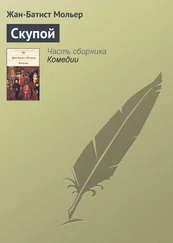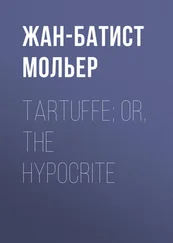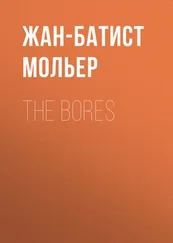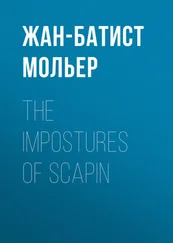Жан-Батист Мольер - Psyche
Здесь есть возможность читать онлайн «Жан-Батист Мольер - Psyche» — ознакомительный отрывок электронной книги совершенно бесплатно, а после прочтения отрывка купить полную версию. В некоторых случаях можно слушать аудио, скачать через торрент в формате fb2 и присутствует краткое содержание. Жанр: foreign_antique, foreign_prose, foreign_dramaturgy, на английском языке. Описание произведения, (предисловие) а так же отзывы посетителей доступны на портале библиотеки ЛибКат.
- Название:Psyche
- Автор:
- Жанр:
- Год:неизвестен
- ISBN:нет данных
- Рейтинг книги:3 / 5. Голосов: 1
-
Избранное:Добавить в избранное
- Отзывы:
-
Ваша оценка:
- 60
- 1
- 2
- 3
- 4
- 5
Psyche: краткое содержание, описание и аннотация
Предлагаем к чтению аннотацию, описание, краткое содержание или предисловие (зависит от того, что написал сам автор книги «Psyche»). Если вы не нашли необходимую информацию о книге — напишите в комментариях, мы постараемся отыскать её.
Psyche — читать онлайн ознакомительный отрывок
Ниже представлен текст книги, разбитый по страницам. Система сохранения места последней прочитанной страницы, позволяет с удобством читать онлайн бесплатно книгу «Psyche», без необходимости каждый раз заново искать на чём Вы остановились. Поставьте закладку, и сможете в любой момент перейти на страницу, на которой закончили чтение.
Интервал:
Закладка:
Molière
Psyche
PERSONS REPRESENTED
Jupiter.
Venus.
Love.
Zephyr.
Aegiale and Phaëne, two Graces .
The King.
Psyche.
Aglaura.
Cidippe.
Cleomenes and Agenor, two princes , Psyche's lovers.
Lycas, captain of the guards.
A River God
Two Cupids.
PROLOGUE
The front of the stage represents a rustic spot, while at the back the sea can be seen in the distance.
SCENE I
Flora. appears in the centre of the stage, attended by Vertumnus, god of trees and fruit, and by Palemon, god of the streams. Each of these gods conducts a troup of divinities; one leads in his train Dryads and Sylvans, and the other River Gods and Naiads.
Flora sings the following lines, to invite Venus to descend upon earth : —
Flora.
The din of battle is stayed;
The mightiest king of earth
His arms aside has laid;
Of peace 'tis now the birth!
Descend thou, lovely Venus,
And blissful hours grant us!
Vertumnus and Palemon, and the divinities who attend them, join their voices to that of Flora, and sing the following words. —
Chorus of Divinities of the earth and streams, composed of Flora, Nymphs, Palemon, Vertumnus, Sylvans, Fauns, Dryads, and Naiads.
A peace profound we now enjoy,
And games and bliss without alloy;
Earth's mightiest king has giv'n us rest;
To him be praise and thanks addrest.
Descend thou, lovely Venus,
And happy hours grant us!
Then is formed an entry of the ballet, composed of two Dryads, four Sylvans, two River Gods, and two Naiads, after which Vertumnus and Palemon sing the following dialogue : —
Vertumnus.
Yield, yield, ye beauties stern,
To sigh 'tis now your turn!
Palemon.
See you, the queen above,
She comes to breathe soft love!
Vertumnus.
A fair one stern for aye
Ne'er wins a faithful sigh!
Palemon.
To woo has beauty arms,
But gentleness has greater charms.
Both ( together ).
To woo has beauty arms;
But gentleness has greater charms.
Vertumnus.
Seek not your hearts to shield;
To pine is law, and ye must yield.
Palemon.
Is aught more worthless born
Than hearts that love will scorn?
Vertumnus.
A fair one stern, for aye
Ne'er wins a faithful sigh!
Palemon.
To woo has beauty arms,
But gentleness has greater charms.
Both ( together ).
To woo has beauty arms,
But gentleness has greater charms.
Flora answers the dialogue of Vertumnus. and Palemon. by the following minuet, and the other divinities join their dances to the song.
Does wisdom say,
In youth's heyday,
Sweet love forego?
Be up, in haste
These pleasures taste
Of earth below.
Youth's wisdom too
Is love to woo,
And love to know.
If love disarms,
It is by charms;
So yield your arms.
'Twere madness 'gainst his darts
To seek to shield your hearts.
Whate'er the bond
Of lover fond,
'Tis sweeter chain
Than freedom's gain.
Venus descends from heaven, attended by Cupid, her son, and two Graces, called Aegiale and Phaëne; and the divinities of the earth and the streams once more unite their songs, and continue by their dances to show their joy at her approach .
Chorus of all the Divinities of the earth and the streams.
A peace profound we now enjoy,
And games and bliss without alloy;
Earth's mightiest king has giv'n us rest;
To him be praise and thanks addrest.
Descend thou, lovely Venus,
And happy hours grant us.
Ven. ( in her chariot ). Cease, cease, all your songs of joy. Such rare honours do not belong to me, and the homage which in your consideration you now pay me ought to be reserved for lovelier charms. To pay your court to me is a custom indeed too old; everything has its turn, and Venus is no longer the fashion. There are rising charms to which now all carry their incense. Psyche, the beauteous Psyche, to-day has taken my place. Already now the whole world hastens to worship her, and it is too great a boon that, in the midst of my disgrace, I still find some one who stoops to honour me. Our deserts are not even fairly weighed together, but all are ready to abandon me; while of the numerous train of privileged graces, whose care and friendship followed me everywhere, I have now only two of the smaller ones who cling to me out of mere pity. I pray you, let these dark abodes lend their solitude to the anguish of my heart, and suffer me to hide my shame and grief in the midst of their gloom.
Flora and the other deities withdraw; and Venus with her retinue descends from her chariot.
SCENE II.
– VENUS, CUPID, AEGIALE, PHAËNE, CUPID
Aegi. We know not what to do, goddess; while we see you overwhelmed by this grief, our respect bids us be silent, our zeal would have us speak.
Ven. Speak; but if your cares would please me, leave all your advice for a fitter time; and speak of my wrath but to own me right; that was the keenest insult my divinity could ever receive; but revenge I shall have if gods have any power.
Pha. Your wisdom, your discernment, are greater than ours in deciding what may be worthy of you; yet, methinks, a mighty goddess should not thus give way to wrath.
Ven. That is the very reason of my extreme anger; the greater the brilliancy of my rank, the deeper the insult. If I did not stand on so lofty a height, the indignation of my heart would not be so violent. I, the daughter of the Thunderer, mother of the love-inspiring god; I, the sweetest yearning of heaven and earth, who received birth only to charm; I, who have seen everything that hath breath utter so many vows at my shrines, and by immortal rights have held the sovereign sway of beauty in all ages; I, whose eyes have forced two mighty gods to yield me the prize of beauty – I see my rights and my victory disputed by a wretched mortal. Shall the ridiculous excess of foolish obstinacy go so far as to oppose to me a little girl? Shall I constantly hear a rash verdict on the beauty of her features and of mine, and from the loftiest heaven where I shine shall I hear it said to the prejudiced world, "She is fairer than Venus"?
Aegi. This is the way with mortals, this is the style of mankind; they are impertinent in their comparisons.
Pha. In the century in which we live, they cannot praise without insulting great names.
Ven. Ah! how well does the insolent rigour of these words avenge Juno and Pallas, and comfort their hearts for the dazzling glory which the famous apple has won me. I see them rejoicing at my sorrow, assuming every moment a cruel smile, and with fixed gaze carefully seeking the confusion that lurks in my eyes. Their triumphant joy, when this affront is keenest felt, seems to tell me, "Boast, Venus, boast, the charms of thy features; by the verdict of one man was the victory made over us, but by the judgment of all, a mere mortal snatches it from you." Ah! that blow is the direst; it pierces my heart, I cannot bear its unequalled severity; the pleasure of my rivals is too great an addition to my poignant grief. My son, if ever my feelings had any weight with you, if ever I have been dear to you, if you bear a heart that can share the resentment of a mother who loves you so tenderly, use here your utmost power to support my interests, and cause Psyche to feel the shafts of my revenge through your own darts. To render her miserable, choose the dart that will please me most, one of those in which lurks the keenest venom, and which you hurl in your wrath. See that she loves, even to madness, the basest and lowest of mortals, and let her hear the cruel torture of love unreturned.
Читать дальшеИнтервал:
Закладка:
Похожие книги на «Psyche»
Представляем Вашему вниманию похожие книги на «Psyche» списком для выбора. Мы отобрали схожую по названию и смыслу литературу в надежде предоставить читателям больше вариантов отыскать новые, интересные, ещё непрочитанные произведения.
Обсуждение, отзывы о книге «Psyche» и просто собственные мнения читателей. Оставьте ваши комментарии, напишите, что Вы думаете о произведении, его смысле или главных героях. Укажите что конкретно понравилось, а что нет, и почему Вы так считаете.










